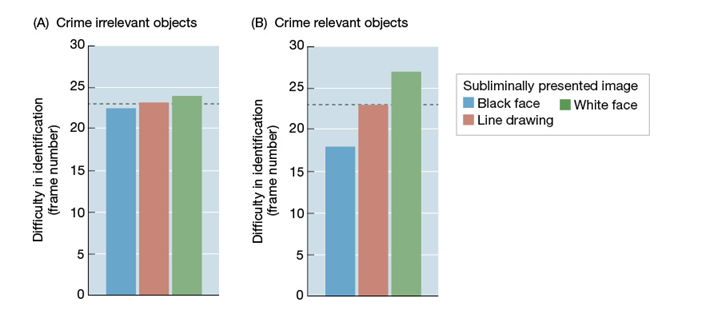Exam 1: Introduction: Principles of Psychology
Exam 1: Introduction: Principles of Psychology100 Questions
Exam 2: Psychology As a Science165 Questions
Exam 3: The Neuroscience of Behavior163 Questions
Exam 4: Genes, Environment, and Behavior163 Questions
Exam 5: Developmental Psychology162 Questions
Exam 6: Sensation and Perception157 Questions
Exam 7: Consciousness164 Questions
Exam 8: Learning147 Questions
Exam 9: Memory163 Questions
Exam 10: Language and Cognition149 Questions
Exam 11: Intelligence151 Questions
Exam 12: Motivation and the Regulation of Behavior160 Questions
Exam 13: Emotions, Stress, and Health163 Questions
Exam 14: Personality166 Questions
Exam 15: Social Psychology164 Questions
Exam 16: Clinical Psychology162 Questions
Select questions type
According to René Descartes, the very fact that he is thinking proves that
(Multiple Choice)
4.8/5  (36)
(36)
Cognitive psychologists became interested in how processing was done inside the brain, which led directly to the development of
(Multiple Choice)
5.0/5  (37)
(37)
Psychologist Margaret Floy Washburn is best known for her work on the
(Multiple Choice)
5.0/5  (33)
(33)
Which of the following would be most likely to argue that an individual regularly drinks to excess because she grew up in an environment where the adults were heavy drinkers?
(Multiple Choice)
4.8/5  (36)
(36)
The idea that children are born with no knowledge or "content" whatsoever and are "filled" by life experiences is called
(Multiple Choice)
4.7/5  (40)
(40)
What are the four important principles that should be considered when you examine any behavior?
(Essay)
4.9/5  (39)
(39)
The followers of _______ argue that there is a close relationship between animal behavior and human behavior.
(Multiple Choice)
4.8/5  (32)
(32)
A behaviorist is helping a special-needs child complete a number of target behaviors. These behaviors may include all of the following except
(Multiple Choice)
4.7/5  (37)
(37)
A researcher presents his participant with a series of flashing lights at varying intervals. After each presentation of a light, he asks the participant to fully describe her internal experiences, a method known as
(Multiple Choice)
4.7/5  (44)
(44)
_______ taught at Wellesley College for more than 30 years and was the first woman president of the American Psychological Association.
(Multiple Choice)
4.9/5  (37)
(37)
Refer to the graphs below.
 Researchers wanted to determine if ideas about race affect our visual perception. In an experiment, white college students were asked to look at a screen with images of objects that were either crime-relevant (e.g., a handgun) or crime-irrelevant (e.g., a book). For each object, the first image was so blurry it was unrecognizable. The image became progressively clearer across 40 different frames until the students were able to correctly identify it.
Before they began the task, they were shown a photo for 50 milliseconds. The photo was of a black face, a white face, or an abstract line drawing. These "flashes" were subliminal images, meaning that the students were not aware of having seen them. Researchers wanted to find out whether seeing a black or white face, even without being aware of it, influenced the students' ability to identify the objects.
-Based on the data, it appears that
Researchers wanted to determine if ideas about race affect our visual perception. In an experiment, white college students were asked to look at a screen with images of objects that were either crime-relevant (e.g., a handgun) or crime-irrelevant (e.g., a book). For each object, the first image was so blurry it was unrecognizable. The image became progressively clearer across 40 different frames until the students were able to correctly identify it.
Before they began the task, they were shown a photo for 50 milliseconds. The photo was of a black face, a white face, or an abstract line drawing. These "flashes" were subliminal images, meaning that the students were not aware of having seen them. Researchers wanted to find out whether seeing a black or white face, even without being aware of it, influenced the students' ability to identify the objects.
-Based on the data, it appears that
(Multiple Choice)
4.8/5  (36)
(36)
Your uncle tells you about an interesting magazine article explaining that humans use only 10 percent of their brains. As a student of psychology, your response should be:
(Multiple Choice)
4.7/5  (38)
(38)
The study of how physical events, such as lights and sounds, affect our senses is called _______.
(Short Answer)
5.0/5  (35)
(35)
The process whereby physical traits and behaviors that improve reproductive success will spread within a species, changing it over time, is known as _______.
(Short Answer)
4.8/5  (23)
(23)
A research psychologist is most interested in discovering the answers to questions like, "Why is empathy helpful to people?" and "How does education contribute to social stability?" This approach is most consistent with the _______ perspective.
(Multiple Choice)
4.8/5  (34)
(34)
Scientific investigation has revealed that the "Mozart Effect" (the notion that children become smarter from listening to the music of Mozart) is
(Multiple Choice)
4.9/5  (40)
(40)
Showing 61 - 80 of 100
Filters
- Essay(0)
- Multiple Choice(0)
- Short Answer(0)
- True False(0)
- Matching(0)